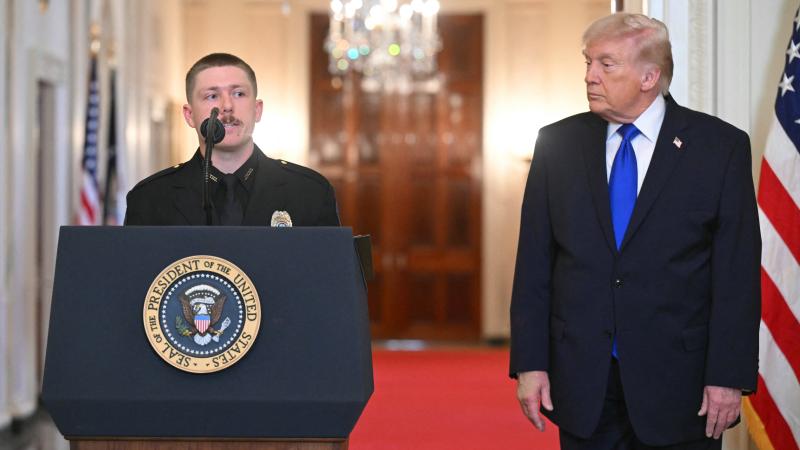'Actual malice': Courts greenlight Devin Nunes defamation lawsuits against mainstream media
Eighth Circuit rules that tweeting old story in response to defamation lawsuit is a "republication" that may trigger liability.
Journalists who get into public spats with politicians may want to rethink their eagerness to pour salt into old wounds, at least in the middle of litigation.
The 8th U.S. Circuit Court of Appeals resurrected a defamation lawsuit by Rep. Devin Nunes against Ryan Lizza and Hearst Media, because the journalist called attention to his article on Nunes and illegal immigrant laborers after the California Republican sued.
"I noticed that Devin Nunes is in the news," Lizza tweeted in November 2019, more than a year after his article was published: "If you're interested in a strange tale about Nunes, small-town Iowa, the complexities of immigration policy, a few car chases, and lots of cows, I've got a story for you."
While his "express defamation" claim isn't coming back, the former House Intelligence Committee chair has adequately pleaded "defamation by implication as to a republication of the article" and "common law conspiracy," a three-judge panel ruled last week, remanding the case to trial court.
It's the second legal victory in a month for Nunes. A federal judge in D.C. allowed his defamation claim to move forward against the Washington Post and reporter Ellen Nakashima.
They falsely asserted that Nunes spread "baseless" claims that Trump Tower was wiretapped and had visited the White House to "inspect documents that might support those baseless claims" — contradicting previous, accurate Post stories on what Nunes said.
The Post filed an answer earlier this month, and U.S. District Judge Carl Nichols directed the parties to submit a "joint meet and confer report" by Oct. 1.
Nunes has otherwise come up short in a slew of defamation lawsuits against Twitter, anonymous Twitter users, a Republican consultant and media organizations.
The 8th Circuit reinstatement shocked some legal watchers for seemingly lowering the bar for "actual malice," the exacting standard public figures like Nunes must meet to continue defamation suits.
"What it's saying is if you get a general denial from the person you're attacking, that's actual malice," Media Law Resource Center executive director George Freeman told Bloomberg Law. "If that were true, 95% of cases that were dismissed for actual malice were wrongly dismissed."
Nunes is responsible for "a series of thoughtless anti-free speech lawsuits, and it's just painful to see the 8th Circuit not recognize that," Eric Goldman, who directs the High Tech Law Institute at the Santa Clara University School of Law, told Just the News in a phone interview. He said this appeals court has a reputation for "weird" rulings.
"You really don't want to see a guy like Nunes get more of a chance" in the courts, even if he can't win any defamation suit, Goldman said. It adds "procedural complexity" and cost to a defamation defense and inhibits "socially beneficial speech."
The attorney behind a family bakery's successful $31.5 million defamation suit against Oberlin College cheered the ruling "for saying we need to reinstall the guardrails" around truth in politics. Courts have been too quick to wave off intentional falsehoods as the acceptable product of "a rough and tumble political world," Lee Plakas told Bloomberg Law.
Just the News asked Plakas if he supports the appeals court's view of the actual malice standard, given that his clients — the three-generation Gibson family — were not public figures.
"It seems that the Court may have strained to reach this result, but perhaps" it recognized that courts must "step up and establish pathways" to ensure that America does not "devolve into intellectually bankrupt chaos in which everyone harbors their own 'truths,'" he wrote in an email.
Plakas downplayed the practical effect of the 8th Circuit ruling, saying that "summary judgment [is] still available to weed our non-meritorious defamation claims" and "a high hurdle still exist[s] going forward" for national political figures.
If the ruling ends up at the Supreme Court, at least two justices — Clarence Thomas and Neil Gorsuch — are receptive to reconsidering the high court's 1964 Sullivan precedent on actual malice, as Nunes unsuccessfully asked the 8th Circuit to do.
'Connecting the dots'
Lizza's 2018 article for Esquire asked rhetorically why the Nunes family, then-Rep. Steve King and "an obscure dairy publication would all conspire to hide the fact the congressman's family sold its [California] farm and moved to Iowa" — specifically, King's district — to run a dairy.
The story claimed the dairy knew it was using illegal immigrant labor and "insinuate[d]" this was why the Nuneses hid their move to Iowa, the 8th Circuit summarized. (Nunes brought the case in Iowa, which is subject to 8th Circuit jurisdiction but has "no conflict" with California on defamation law.)
As with the Post story, Lizza also alleged Nunes used his House Intelligence chairmanship to "spin a baroque theory about alleged surveillance of the Trump campaign," but the journalist specified that the candidate alleged Trump Tower had been wiretapped.
While none of the claims in Lizza's story was individually defamatory, "as a whole" the article arguably implied Nunes was conspiring to hide a "politically explosive" secret, the appeals judges wrote, quoting Lizza's introduction.
A reader "connecting the dots" in the story — the secret, the illegal immigrant dairy labor force, and the congressman's denunciation of guest worker programs as "amnesty" — could see a defamatory implication. Lizza was not engaged in "rhetorical hyperbole," which is protected opinion, but an investigation of "verifiable fact" — whether Nunes was involved in "criminal wrongdoing."
The appeals court determined that Lizza tweeting the story after Nunes filed suit counts as "republication" that creates a "new audience" for a work identified as defamatory.
Previous rulings "do not hold categorically that hyperlinking to an original publication never constitutes republication," the panel said. And because the 8th Circuit is considering a motion to dismiss, it's only evaluating whether there's a "reasonable expectation that discovery will reveal evidence" of actual malice.
This legal standard would be "extremely problematic" if upheld, Goldman told Just the News. "Any further publicizing of the material," regardless of whether it came with editorial comment, "becomes actual malice" and overcomes a key defense.
"This is the whole structural problem with notice-and-takedown-style schemes," he said: The process gives too much power to the sender and "boxes in" the recipient.
Plakas argued that retweeting poses a "ubiquitous risk" that wasn't present when Sullivan was decided. "[N]ow the ease and lure of attracting attention to a position or cause by a few keystrokes is a trap for the undisciplined who cannot restrain themselves," and it applies "across the political spectrum."














